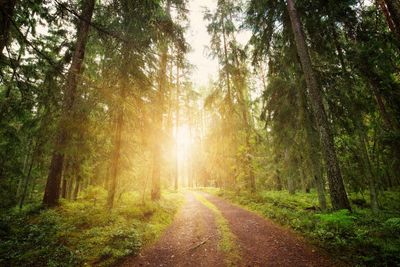What is Shinrin-Yoku?
Shinrin-Yoku first started in Japan in the 1980s as a form of nature therapy. Though the term “forest bathing” may sound somewhat peculiar, the process encourages participants to immerse themselves into their woodland surroundings by using their five senses.
Key Aspects of Shinrin-Yoku
Anyone can take a brisk hike through the forest, but Shinrin-Yoku is not about physical exertion. Though forest bathing experiences often last several hours, the actual distance traveled is usually less than a mile. Those practicing Shinrin-Yoku may walk leisurely or sit among the trees. However, the goal is not to accomplish anything. The key aspect of the process is clearing the mind of stress and becoming one with the surroundings through close attention to elements of the forest. By becoming more aware of the sights, sounds, and smells of the forest, “bathers” are able to connect to the world in a new way.
Health Benefits of Shinrin-Yoku Forest Bathing
While there is much research to still be done regarding the health benefits of Shinrin-Yoku, many practitioners feel that immersing themselves in the forest improves their mental, as well as physical health. Proposed health benefits of Shinrin-Yoku include improved mood, improved sleep, and increased energy levels. Some studies suggest that many trees emit a substance referred to as phytoncides. The presence of these phytoncides during regular forest bathing sessions is said to increase the amount of “natural killer” cells, which may boost the body’s immune system.
Where to Practice Shinrin-Yoku Forest Medicine
Within the United States and abroad, trained Shinrin-Yoku guides can assist those wishing to try this form of natural therapy. While guided Shinrin-Yoku experiences are available, it is also possible to venture into the forest for a session without one. Urban dwellers can also enjoy many of the same benefits of Shinrin-Yoku by visiting local parks and green spaces. Before beginning the process, ensure that the selected locations are safe and have minimal interruption from man-made nuisances.
